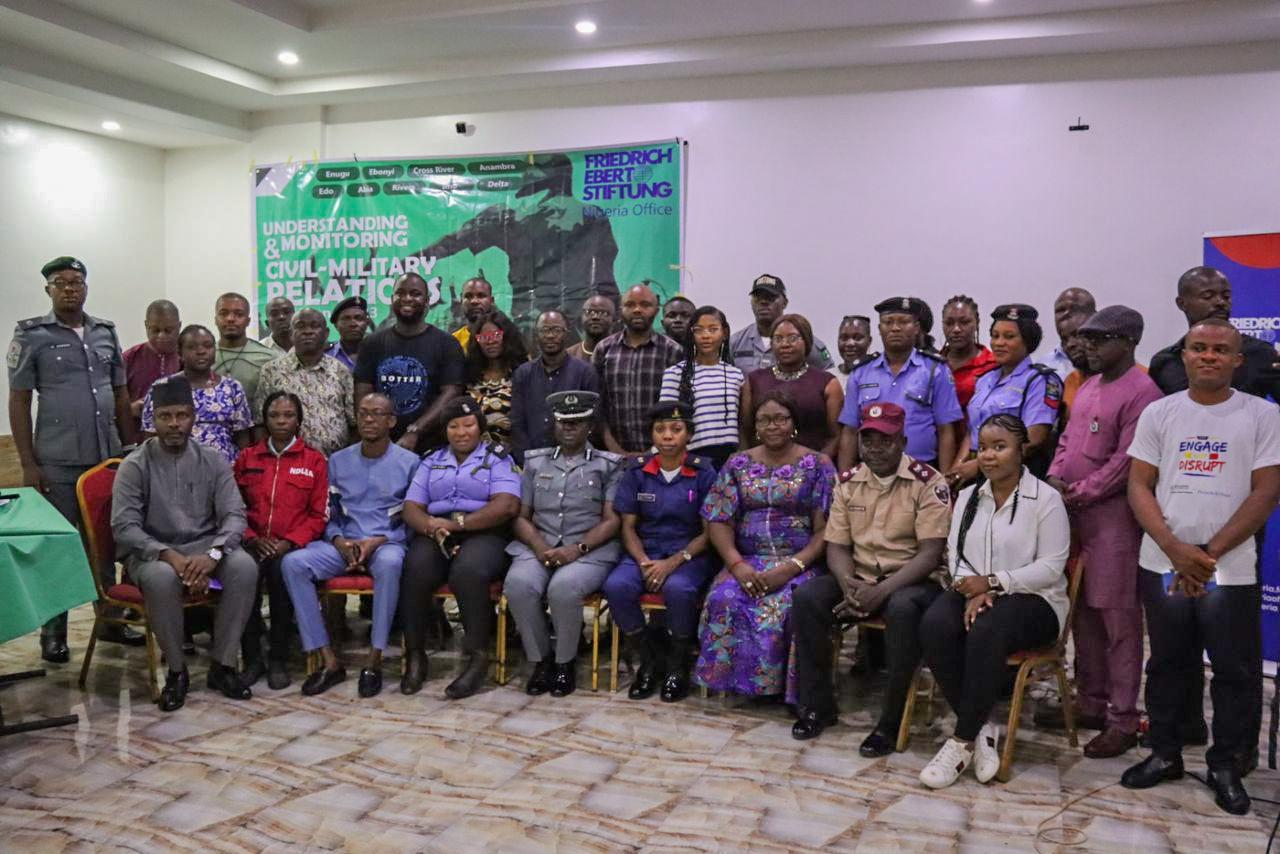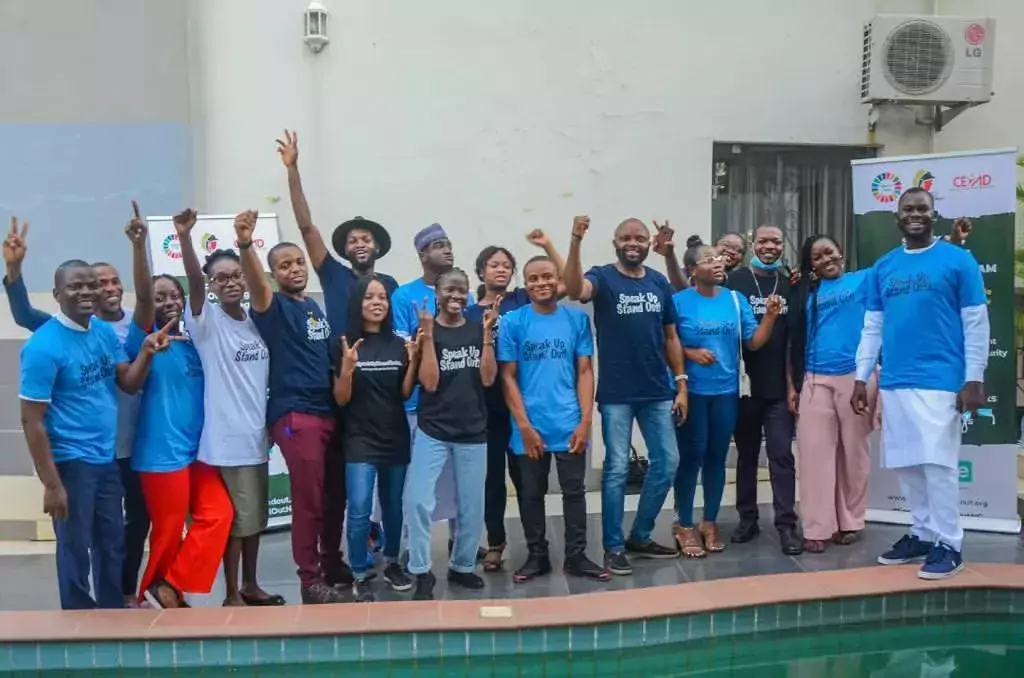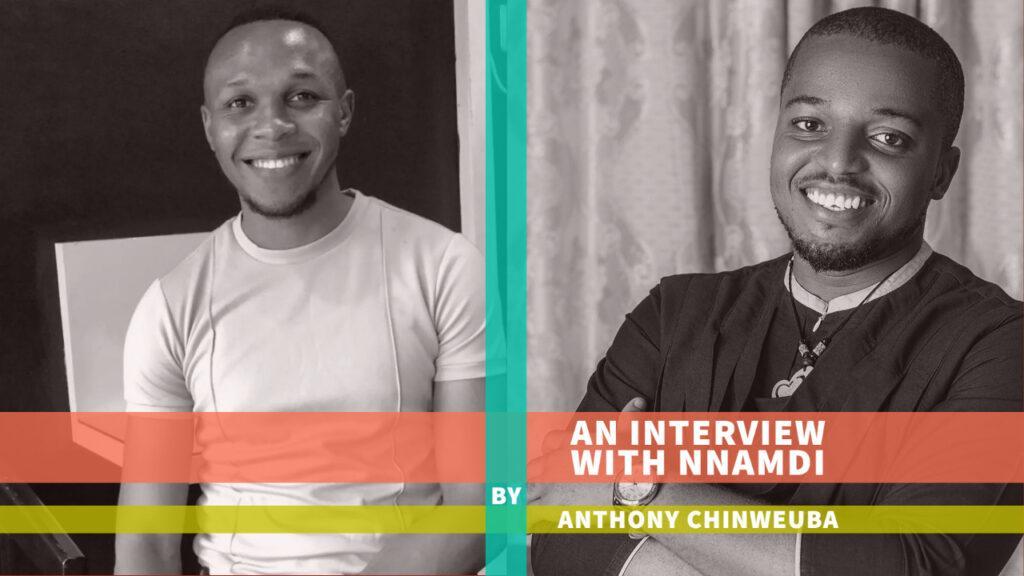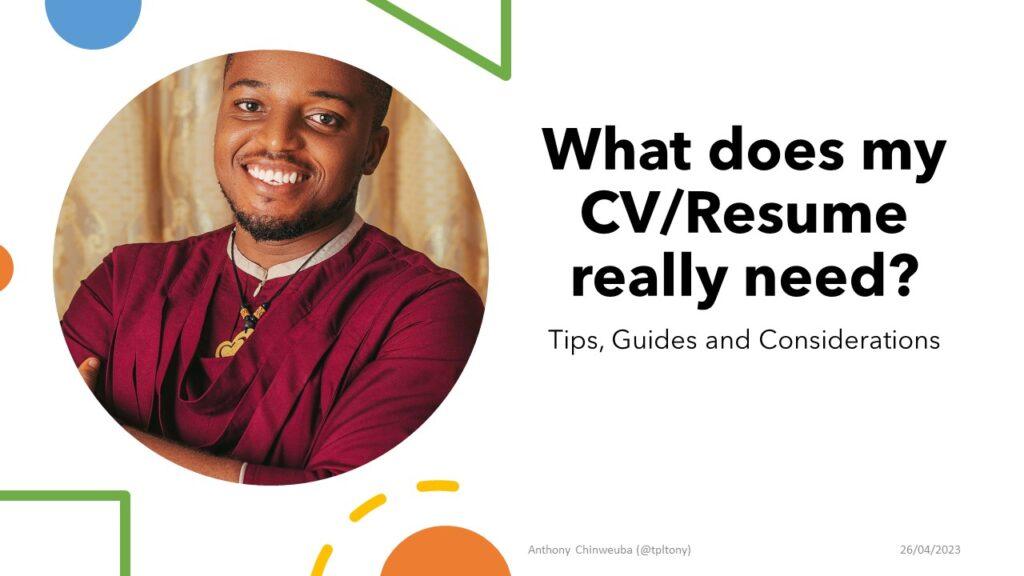Table of Contents
I had the opportunity to attend a training on Civil-Military Relations, organized by Friedrich Ebert Stiftung (FES), Institute for Peace and Conflict Resolutions (IPCR), CLEEN Foundation and CISLAC. While getting ready for the 3 days program, I had my own questions to which I needed an answer, and here it is.

Introduction
Growing up, my father shared stories of unquestioning obedience, highlighting the military-style upbringing he experienced. However, as I matured into a young adult, I began to question the challenges associated with this approach, especially considering our nation’s embrace of democracy and globalization. It’s not surprising to encounter fellow young adults who prioritize their independence over blindly following orders, leading to a natural inclination for resistance when our fundamental rights are disregarded. This issue forms the basis of the problem in civil-military relations, particularly from the perspectives of youth and women who yearn to be heard and understood.
In a society where the armed forces are tasked with peacekeeping, how can we bridge the gap and foster meaningful dialogue between civilians and the military? How can we challenge cultural norms that undervalue women’s voices and grant them the platform to actively participate in discussions? Moreover, what communication strategies and procedures can we employ to ensure mutual understanding, respect, and a stronger civil-military relationship? These are the pivotal questions we must address to navigate the complexities of civil-military relations and create a more harmonious and inclusive society.
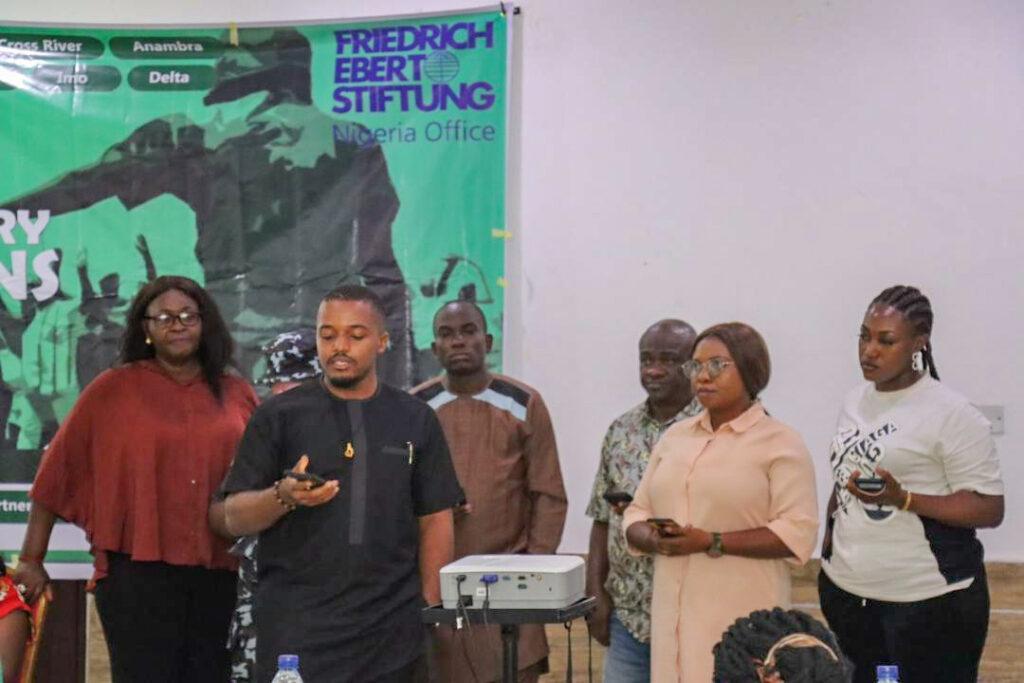
Learnings from the event
According to Burk, Civil-Military Relations is the relationship between Civil society, and the Military organisation, or organisation established to protect it. The Idea of Civil-Military Relations is such that you cannot talk about it without talking about Human rights. Why, you may ask. Because while studying this relationship, you will have to first understand the parties involved and what happens within the interaction process of these various parties.
The parties involved are 3, the Military, the Institution, and the Civil society. In this relationship, the common factor is the interaction with our Human rights. For this reason, many of the factors addressed had a lot to do with defining human rights, talking about the types and how far we’ve gone with them in Nigeria. Also, it talked about enforcing the rights and the accountability of the various parties involved in this whole discussion.
From the group tasks that I executed with my team, I was able to learn more by answering the following questions…
What factors affect human rights accountability in Nigeria?
It is good to know that many factors affect human rights accountability in Nigeria, and these things if not taken care of, could come off as a drawback to the promotion of Human rights in Nigeria. Here are some of the factors that affect this in Nigeria.
Level of education
Insufficient awareness and understanding of human rights among the general population can impede accountability efforts. Education and awareness-raising initiatives are crucial to empower individuals to demand their rights and promote accountability. To even know their rights first, many civilians also need education to know what their rights are, as well as when they’re being violated. Also, they need to know how to go about enforcing these if they’re violated.
National security
In many cases, the attempt to uphold the security of a nation may involve actions that may violate individuals’ rights. This is commonly seen in cases of active combat like terrorist attacks and responses by the armed forces on site, where “collateral damage” may be quickly overlooked and dismissed.
Advocacy suppression
Restrictions on media freedom can limit the ability of journalists and civil society organizations to report on human rights violations and hold perpetrators accountable. Likewise, Political interference in the functioning of independent institutions, including the judiciary and human rights commissions, can weaken their effectiveness and hinder human rights accountability.
Discrimination Bias
Discrimination based on factors like ethnicity, religion, gender, and socioeconomic status can undermine human rights accountability. Marginalized groups may face systemic biases, making it harder for them to seek justice and hold perpetrators accountable.
Weak legal frameworks
Inadequate or poorly enforced laws can undermine human rights accountability. Nigeria’s legal framework may lack clarity, consistency, or effectiveness in protecting and promoting human rights.
What are the roles of Civil Society and Civilians in improving Civil-Military Relations?
While studying human rights, it is necessary to understand that Civil Society is often referred to as the Right-holders, whereas the Military is referred to as the duty-bearers. Now, the question arises, how can the right-holders help the duty-bearers to improve human rights accountability?
Awareness and Education
Rights-holders can educate themselves about their rights, the relevant laws, and international human rights standards. They can effectively communicate their concerns and demands to duty-bearers by being informed.
Advocacy and Public Pressure
Rights-holders can engage in advocacy efforts to raise awareness about human rights issues, mobilize public opinion, and put pressure on duty-bearers to act. This can include organizing protests, public campaigns, media engagement, and utilizing social media platforms to amplify their voices.
Dialogue and Engagement
Rights-holders can actively engage in dialogue with duty-bearers, such as government officials, lawmakers, and representatives of relevant institutions. They can participate in public consultations, meetings, and forums to express their concerns, provide recommendations, and contribute to policy-making processes.
International Engagement
Rights-holders can seek support from international human rights mechanisms, such as United Nations bodies, regional human rights institutions, and NGOs, to raise awareness about human rights violations and bring international pressure to bear on duty-bearers.
Empowering Marginalized Groups
Rights-holders can work towards empowering marginalized groups and ensuring their inclusion in human rights discussions. Amplifying the voices of those who are most affected by human rights violations can bring attention to their specific needs and challenges, leading to more effective accountability measures.
How can Civilians be protected in armed conflict?
As the military carry out their task, especially in cases where conflict and active force or exercise of their powers are necessary, it is very likely that civilians could be caught in the middle of it all. This then brings the question, Is Civilian harm mitigation attainable within Nigeria’s Internal Security Operation? How should it be improved?
Based on what we see on the surface, one could say that it is not possible to mitigate civilian harm in Nigeria. But in theory and carefully planned and executed processes, it is very readily achievable by the Internal Security Operations. This could be possible through the following ways.
Training and Professionalism
Security forces should receive comprehensive training on human rights, international humanitarian law, and the principles of civilian harm mitigation. This includes understanding the rules of engagement, minimizing the use of force, and ensuring the safety and security of civilians.
Clear Rules and Guidelines
Clear rules and guidelines should be established for security forces operating in internal security operations. These rules should emphasize the protection of civilian lives and property, avoiding indiscriminate or disproportionate use of force, and providing clear directives on minimizing harm to non-combatants.
Improved Intelligence and Targeting
Enhanced intelligence gathering and analysis can help security forces better identify and target threats while minimizing the risk of harm to civilians. Accurate and up-to-date information can enable more precise operations, reducing collateral damage.
Community Engagement and Trust-Building
Building trust and strong relationships between security forces and local communities are vital. Open lines of communication, community engagement programs, and collaborative efforts can help security forces gain valuable information, minimize misunderstandings, and foster cooperation in mitigating harm to civilians.
Regular Evaluation and Review
Regular evaluation and review of internal security operations are essential to identify areas for improvement. Lessons learned from previous operations should be integrated into training, tactics, and policies to continually enhance civilian harm mitigation strategies.
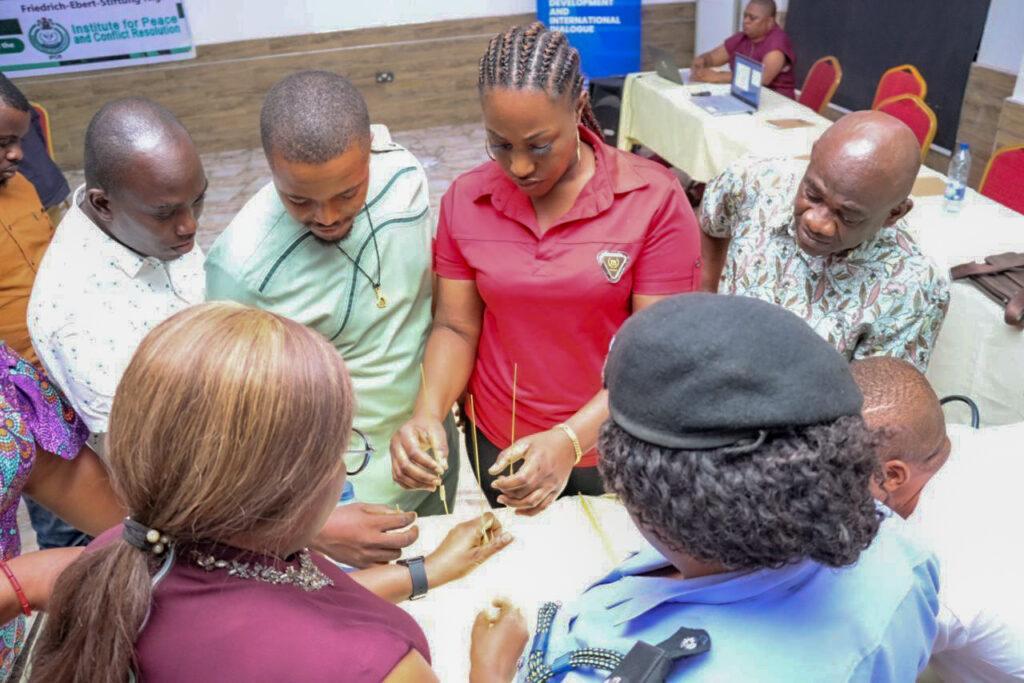
Key takeaways
In our daily engagement with the military, we should remember that as much as they have a task to protect us, they are also tasked with honouring our basic human rights. To a large extent, serving as a part of the military means they are sacrificing their own human rights for our own good, and as such we need to appreciate them as much as we can.
One could also argue that such respect is earned and not taken. This leads to the idea of Professional Military education where, the officers are better trained to relate more tactfully with the civilians who were not groomed with the same mindset of obeying the last order, as they are trained to do. When both parties can recognise the pains of the other as well as the duty they have to the other, this relationship would be a better one where both parties communicate more effectively with each other.
This communication is the key to better youth and women engagement particularly, in fostering constant support from both civilians and the military. When the friction is reduced, the state remains much more peaceful for all. Remember, peace does not mean the absence of war, and as such, there may still be some friction with other anti-state bodies and groups, but that can be easily tackled when the civilians are working collaboratively with the military with a high level of trust. This means better feedback, planning and execution of ideas that foster and help groom the growth of peace in our various societies.
